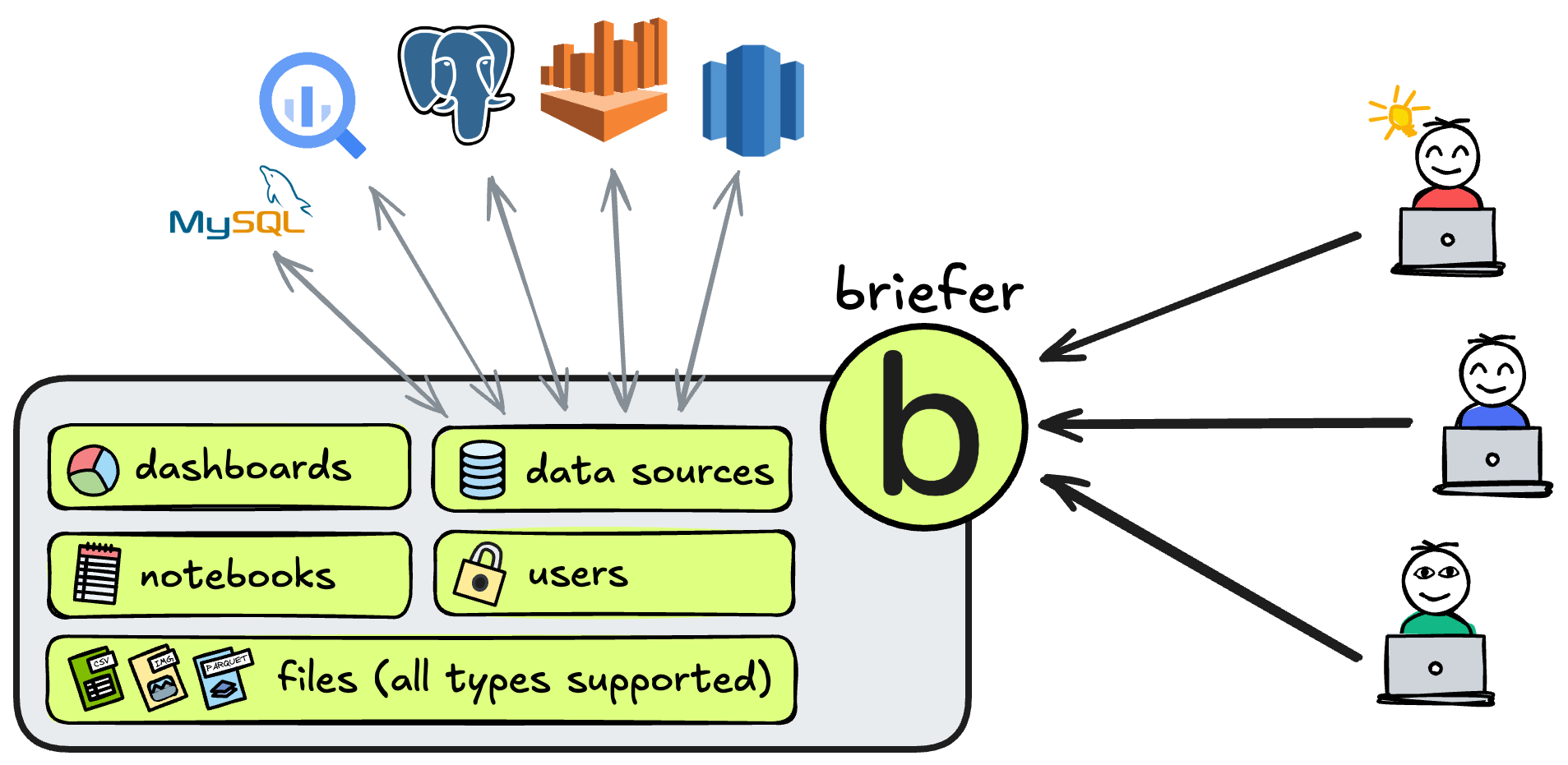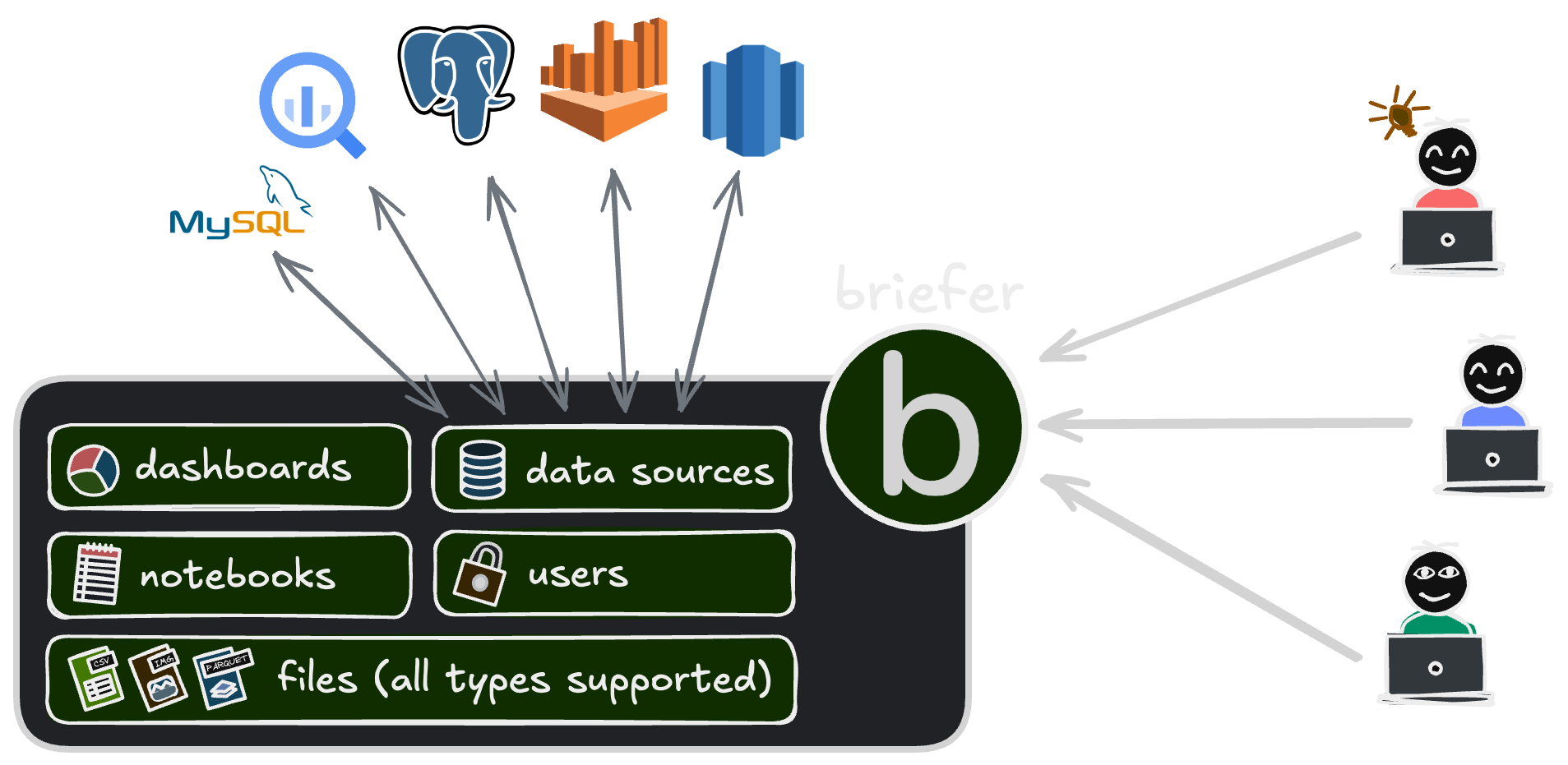pip and the second is to run Briefer’s Docker container directly.
Running through pip
The recommended way to run Briefer locally is to install it using pip and run it using the briefer command.
Please note that Briefer requires Docker to run, so
make sure you have it installed before running the commands below.
pip, our initialization scripts will take care of downloading our docker image, setting up volumes to store Briefer’s data, and starting the application.
Running with docker
Alternatively, you can also run Briefer using Docker directly:` to the end of each line instead of the \, like this:
Deploying Briefer for your team
The ideal way to use Briefer is to deploy it somewhere your whole team can access.
